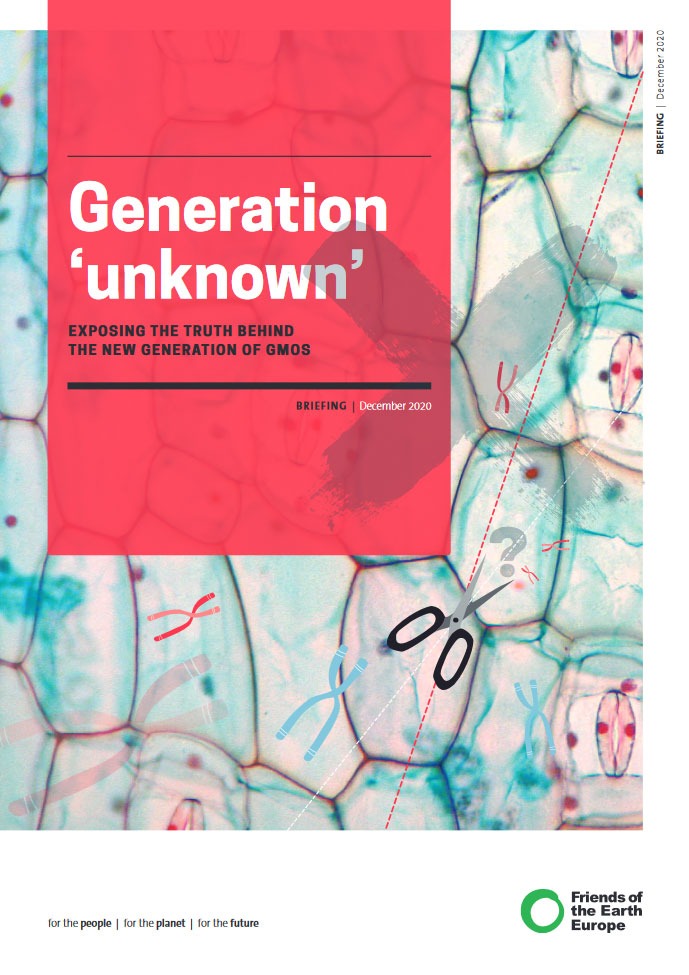
As Europe’s farming sector faces up to the combined challenges of climate change, biodiversity loss and an increasingly globalised market, a new generation of genetically modified organisms (GMOs) is being portrayed as a magical solution.
Some have suggested that these new genetically modified crops, animals and microbes should be exempt from GMO safety legislation, introduced to protect consumers and the environment from the risks posed by GMOs.
This paper argues that these new forms of genetic modification (including techniques such as gene editing) would not make the farming system more resilient to extreme weather, reduce biodiversity loss, or result in healthier food and fairer incomes for farmers, and because of the risks they pose, must be controlled by the existing laws.
It asks key questions as to who will benefit from this new generation of GMOs, who does the technology empower, who does it disempower and who owns it? It also argues for support for genuine solutions that will benefit farmers, consumers and nature in our crisis-engulfed world.







